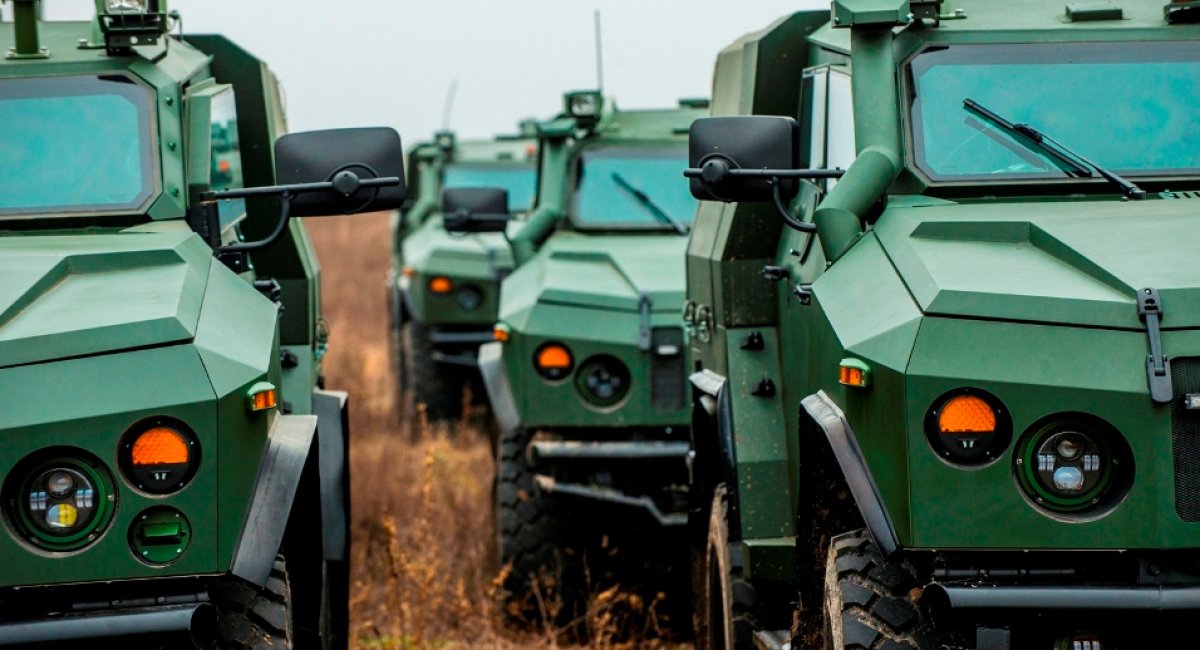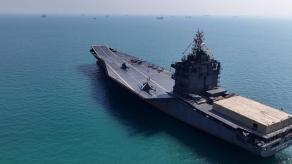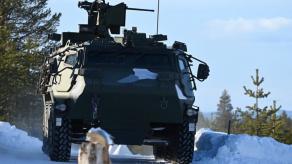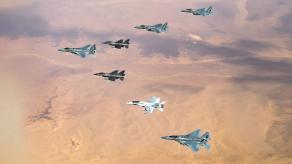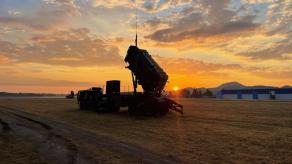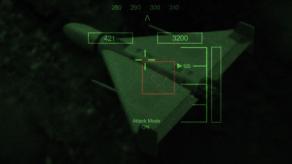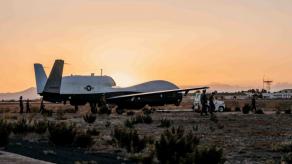As a military confrontation broken out between Ukraine and Russia in 2014, there arose an urgent need for equipping Ukrainian military and security forces with current-generation weaponry and equipment systems. R&D and Production Company "Ukrainian Armor Design and Manufacturing Company", the renowned developer of Varta and Novator APCs, was among the privately-owned defense technology companies who rushed into that market along with state-owned defense contractors. The following is an interview conducted with Vladyslav BELBAS, CEO of Ukrainian Armor Design and Manufacturing Company, LLC, by Defense Express on the Company's latest achievements and vision for the future.
- Your Company is renowned for the production of two special-purpose armored vehicles - "Varta" and "Novator" that have been fielded to Ukraine's military and security forces since 2015. What's the situation now with this equipment?
Read more: Ukraine’s UCAV capability
Our vehicles were specifically developed to meet the operational needs of defense and security agencies. In Ukraine's Defense Ministry parlance, Varta and Novator are armored personnel carrier (APC) intended primarily for personnel transport roles. Whilst the Varta, being bigger in size, is more apt to transport personnel to battlefield locations at times of conflicts or terrorist events, the Novator, a far smaller vehicle with fewer crew members, is meant to provide off-road transportation to special operations squads.
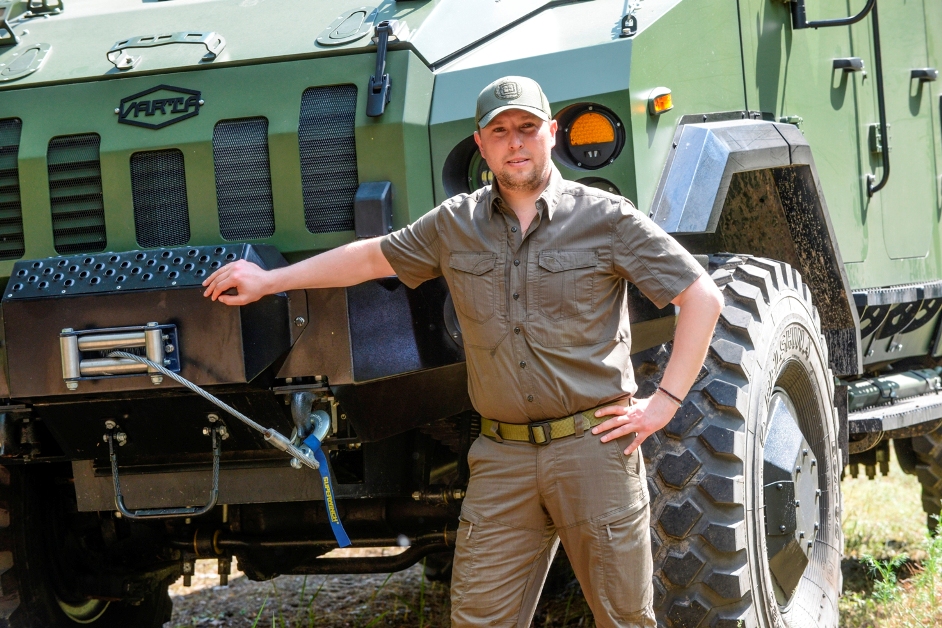
The APC's have both successfully completed Agency-level tests conducted in accordance with the technology testing and evaluation procedures adopted by the Ministry of Defense, National Guard and State Border Guard Service; and have been introduced, pursuant to legally prescribed procedures, into the inventories of Ukraine's defense and public security services.
Varta is currently completing its official qualification trials (OQT) program and has logged over 32,000 kilometers out of 35,000 kilometers required. Next, we will have to test the vehicle for resistance to blast effects.
According to our assumptions, the testing and qualification process for Varta will be finalized and completed in September 2020. Novator, too, has logged more than 30,000 km and so it only has a few thousand kilometers left to run. In this case, too, we hope the testing and qualification process will be completed in September.
At a weight of 8.8 tons, Novator shows good performance in terms of lightweight, maneuverability and speed. There have been no systemic problems found with the vehicle over its three years in operation. But, you know, any vehicle certainly has to be subjected to improvements and fine-tunings in order to become perfect.
Overall, over two hundred Varta APC's and more than five dozen Novator APC's have been fielded to the Armed Forces and National Guard so far.
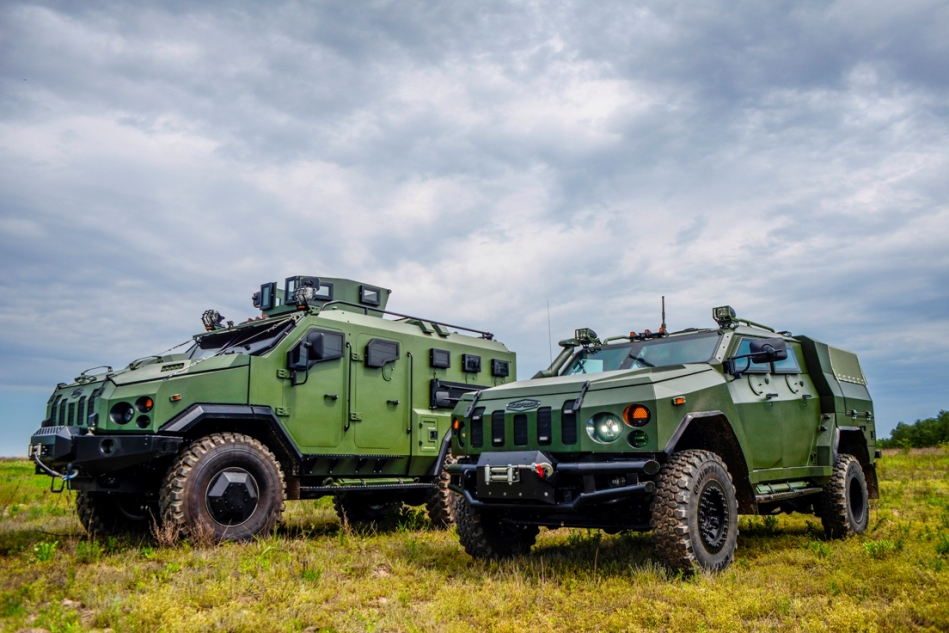
Company is renowned for the production of two special-purpose armored vehicles - "Varta" and "Novator"
- What's like the user feedback?
I have to note that Ukrainian defense and public security services previously did not have vehicles of this category in their respective inventories. So some troubles do occur, which we fix as part of warranty servicing. But still, there have been none of global, systemic problems found in our vehicles. The troubles that occurred were caused mainly by the operation of the equipment. So this is more of a question of user training. We are currently negotiating a collaboration with domestic industries regarding the creation of simulator trainer systems for the two vehicles.
As regards the feedback from military users, it is largely positive. Let me cite an example regarding the Novator APC. Our reconnaissance men, who were looking at offers from world renowned APC vehicle suppliers, including Sandcat of Israel, compared the vehicles to find out that Novator is as well equipped as the Israeli rival and even surpasses it in quality of the interior design. We well realize that a soldier is not a machine. So we challenged ourselves to create a most comfortable environment in our vehicles and devoted much attention to important details. Thus, for each crew member there is a connector for charging communication devices of all kinds, and there are even miscellaneous items such as tea cup holders.
- Have the Varta and Novator APC's received their baptism in combat already?
There were situations where Varta vehicles came under live fire, but with no fatalities or penetrative impacts as the armor of the vehicle was able to withstand enemy attacks. As for the Novator, I cannot say for sure whether it is deployed in downrange or not. But reports reached us that a Novator APC was used to evacuate out of range personnel of military unit # 3066, National Guard. For the record, it's Novator that had been selected to provide security for the Ambassador Extraordinary and Plenipotentiary of the Kingdom of Sweden to Ukraine, Mr. Tobias Tiberg and the Minister for Foreign Affairs of the Kingdom of Sweden, Mrs. Ann Linde during their working visit to Stanytsia Luhanska in early March 2020.
- What new configurations are being considered for the Varta and Novator APC's?
Regarding the Varta, there have been two configurations developed and implemented: a mobile platform for the strike UAS Sokil and a communication command/staff vehicle. Beyond that, work is in process to reconfigure the vehicle, under a MoD contract, into a carrier platform for 120 mm mortar fitted out with an automated fire control capability. In addition, there has been a collaboration forged with domestic Radar industries to make it into a radar vehicle and an anti-drone warfare vehicle.
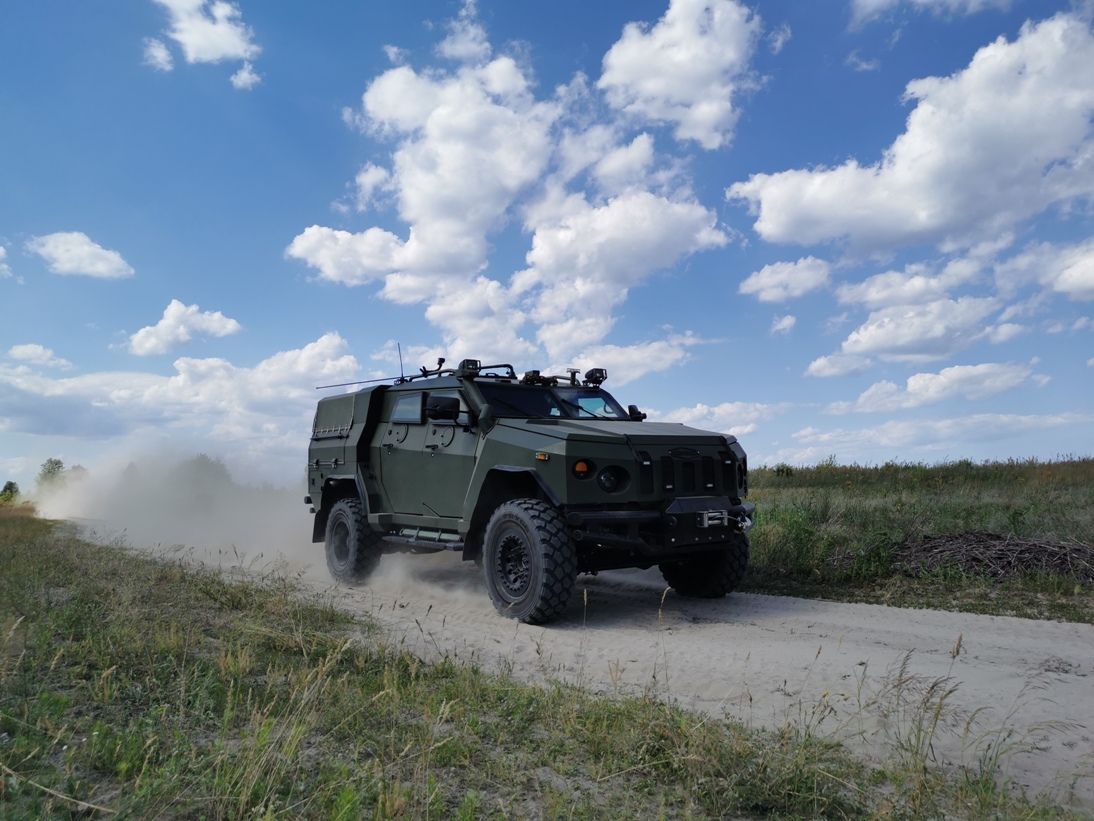
As far as the Novator is concerned, we, jointly with the 93rd Brigade, offered the Ministry of Defense that the vehicle be reconfigured for transport of the Stugna-P ATGM system crew. This configuration is much the same as the baseline, excepting that it adds mission-specific sections equipped for anti-tank missiles and provides room for the ATGM launcher and equipment. These additions are easily removable allowing the vehicle to be reconfigured back into the baseline as needed. On top of that, there has been considered a configuration outfitted with Amulet weapon station.
I would add to this that the technological and design solutions regarding armor protection of rolling vehicles that we implemented for both the Varta and Novator APC's have been adopted for the indigenously-developed mobile anti-ship cruise missile (ASCM) system "Neptune". We are attached to the Neptune project to develop and manufacture armored cabins and to design exterior layout of the Neptune ASCM vehicles.
- What are the key technological solutions that make your APC's stand out among similar vehicles offered by the Ukrainian market?
Overall, we have implemented a complete range of technological solutions, among them a central tire pressure regulation system, NATO-compatible blast attenuating seats, and a highly effective, user-safe fire suppression system that has a response time counted in milliseconds. Next is armor protection. In the Varta and Novator APC vehicles we use Swedish-supplied armor steel with hardness equal to 560 HB, while other manufacturers use primarily 500 HB armor. Finally, we have patented a technology for welding this armor steel. With assistance from the E.O. Paton Institute of Electric Welding, there has been developed a proprietary technology for welding armor steel joints. We have made the welding joint strengthened - it was never shot through during live firing trials. This technology is featured on both the Varta and Novator vehicles.
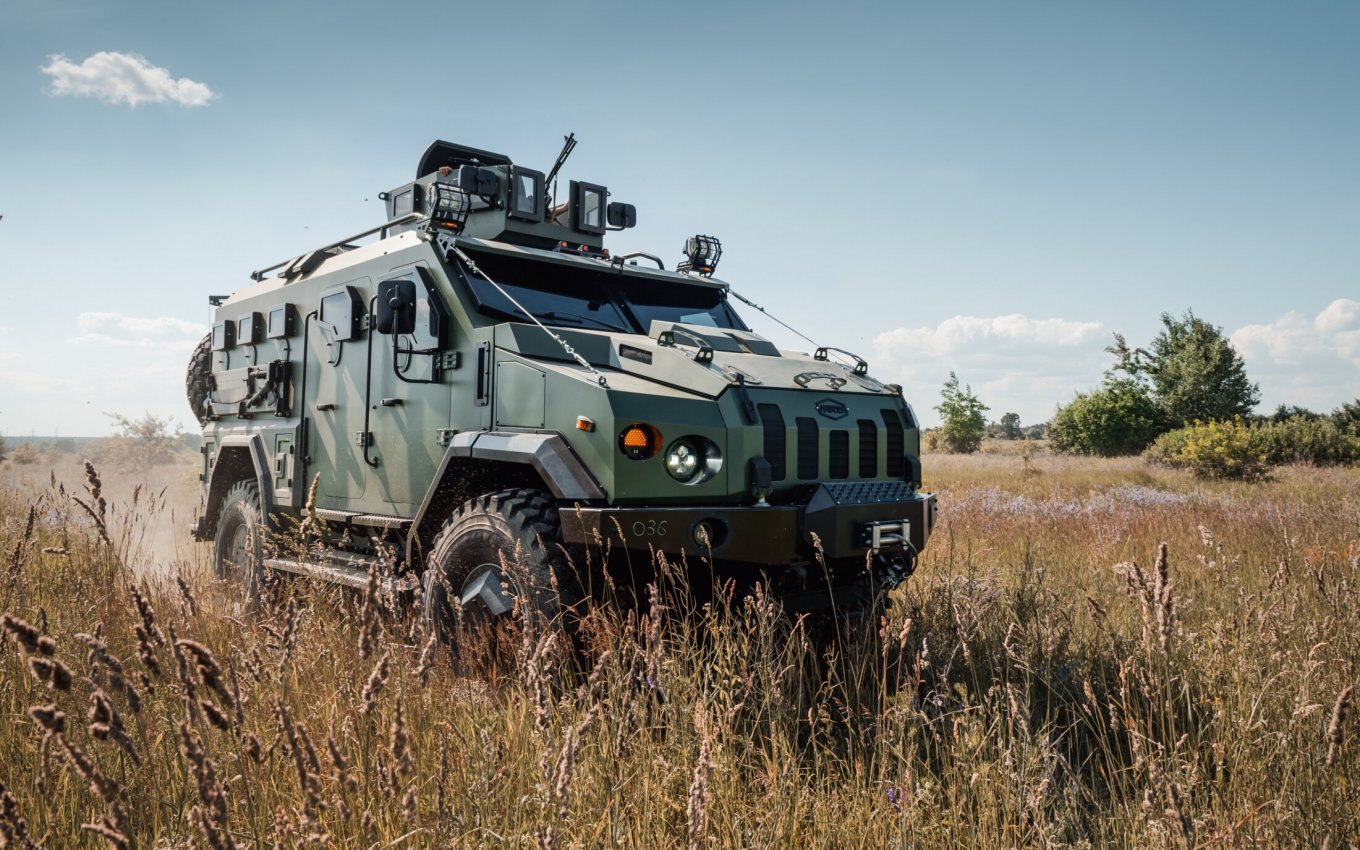
- Your Company is known to be dealing in the field of mortar weapons alongside armored carrier vehicles. What the situation is like in this regard?
We are currently working on three mortars in calibers 60 mm, 82 mm and 120 mm, designated, respectively, MP-60, UPIK-82 and MP-120.
The UPIK-82 successfully passed through the OQT process and was introduced into the Armed Forces inventory in 2018. De-veloped as a derivative of original Soviet technology, it was matured with improved features in terms of sighting and ranging, design and structure of the mortar base plate, as well as optics just to name a few. There has been no negative feedback received from users across all of its years of deployment. Overall, more than 300 units of the UPIK-82 mortar have been operationally deployed so far.
The MP-60 was adopted for military use pursuant to Cabinet Decree No 345, with around ten dozen units fielded so far. This is a unique mortar for Ukraine; it was never produced or operationally deployed in Soviet days. The MP-60 is suited for special operations missions and can be fired with or without a bipod mount. In this mortar product we have implemented a range of technical solutions that make it advantageous over competing technologies. Our plan now is to bring the product soon into the OQT process that would include test firing of 5,000 rounds of ammunition. As part of ultimate, Agency-level testing program we have successfully put it through the full range of tests required by the OQT program. The only OQT test left to be done will be aimed to verify and validate the Mortar fatigue life. Given the experience we have with the 82 mm mortar (with barrel life expectancy confirmed at 10,000 rounds), I am confident there will be no difficulties passing the test.
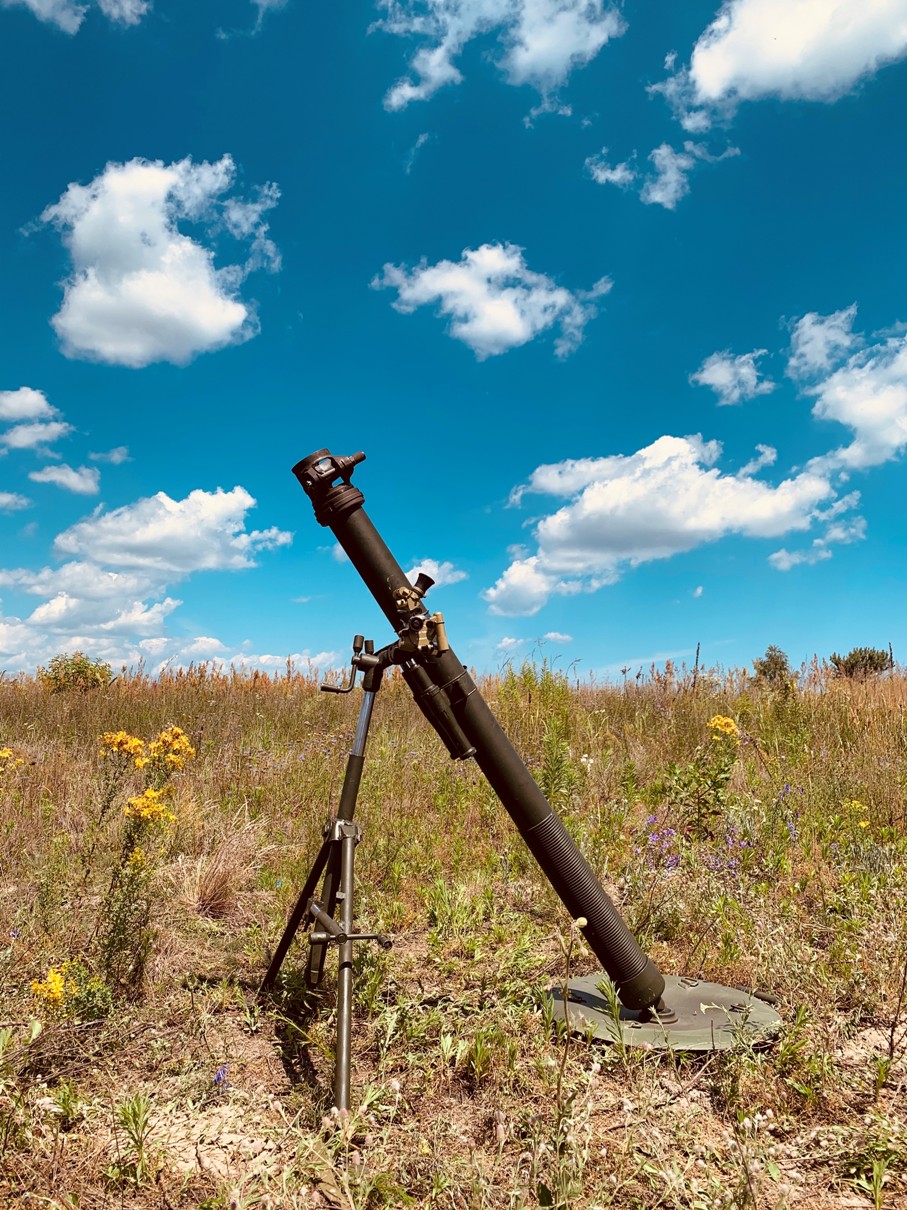
Regarding the MP-120, we are currently at the final stage of the OQT process, with only a handful of rounds left to be test fired. We hope all the required actions will be completed soon. Here, I would like to emphasize that we are making the mortars compliant with the operational requirements set out by the Ministry of Defense. The MP-120 will therefore have characteristics similar to the Soviet-designed 2B11, this being necessitated by the need to employ the firing charts available for the currently existing types of mortar rounds. That is, the MP-120 retains the same barrel geometry as the 2B11, but has other components, such as base plate, bipod, sighting and aiming mechanism, wheelbase, etc. developed by our engineers. Moreover, the MP-120 features an improved fuse mechanism and uses higher-grade steel. Basically, the mortar came out to be really good.
- What about mortar rounds? Your Company announced it has launched production lines for mortar rounds of 60mm, 82mm and 120mm calibers. Could you give a few details about this?
Our 60 mm round passed through a full range of tests and was adopted for operational use in 2019. We are currently working on 82mm and 120mm rounds. The 120 mm is currently under development, but progress depends on financing. If the Ministry of Defense continues with orders for 60 mm rounds, we will be able to move faster in this area. Mortar rounds, especially in the 60mm caliber are in demand indeed.
- What are other projects your Company is working on in addition to those you've mentioned above?
Yes, indeed, we are setting up a production line for the world market renowned air defense gun system ZU-23-2. Whilst most of the System components have been developed in-house by our Company, still there are components that need to be sourced from foreign countries. I am talking, above all, about the barrel, with which the weapon comes equipped for testing. It is assumed that the barrels will soon begin to be manufactured in-house as well. This is a highly promising business, and especially so knowing that the ZU-23-2 has been extensively deployed both in an outside of Ukraine, with over five hundred ordered for export.
There is another project that we would like to continue into the future, and it is about the development of an infantry fighting vehicle in the 25-ton class. In 2017, we forged a written agreement with the Ministry of Defense to develop an armored fighting vehicle for infantry use, to be known as "Guardian", which will be similar in to the Soviet-era AFVs BMP-1 and BMP-2. We developed a preliminary design and submitted it to the Ministry of Defense for consideration and possible approval, but for some reason have been never given any positive response. Still, we hope that this situation will change soon.
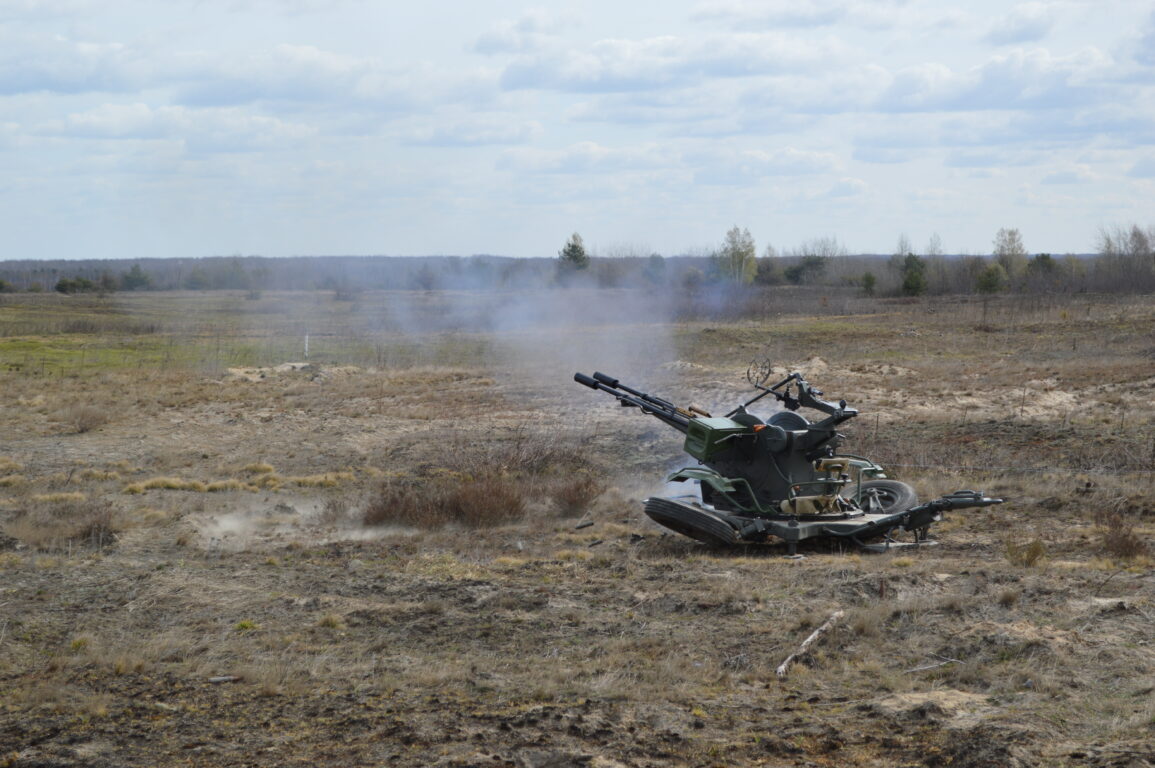
- My last question is about military technology collaboration with international customers. Does your Company have any ambitions to develop its export capabilities?
Since 2016, we have been proactively promoting our equipment in Africa, Asia, and Latin America.
In 2018, the company concluded its first and, according to available information, Ukraine's first international trade contract for the delivery of combat vehicles produced by a private enterprise. The contracted consignment of APC Varta was adapted to the end-user requirements (with the ins and outs of operating in countries with hot and humid climate taken into account) while retaining key features of MRAP vehicles. In August 2019, we were licensed by the Government to sell own-label defense-related products in export markets and to buy defense products from international suppliers directly wherein it's needed for our production programs (license valid till March 1, 2024). At the same time, we closely cooperate with government-licensed arms dealers.
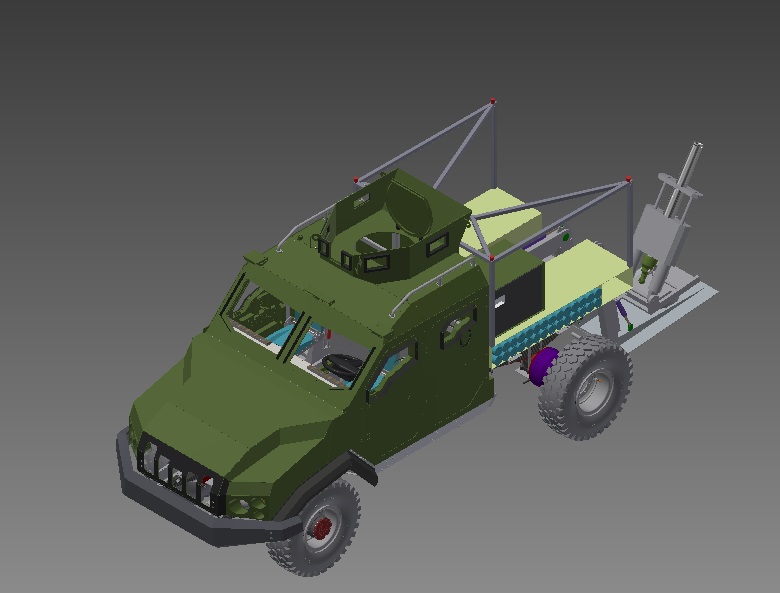
Prior to COVID-19 quarantine, we participated in several international trade fairs held in Ukraine, Turkey, Peru, the UK, the UAE, and France. Every time our mount caught the great interest of potential customers, partners, and international competitors. Currently, there is a great amount of negotiations held. While the arms export market is a conservative market, we have around 10 international cooperation projects regarding both the Varta and Novator vehicles. Geographically these are countries in South America, Africa and Asia, and there has been an interest shown in our mortars as well as the ZU-23-2 gun system.
Interviewed by Anton MIKHNENKO
Read more: Turkish Aselsan Radios for Ukraine successfully passed the inspection of the state service of special communication and information protection



